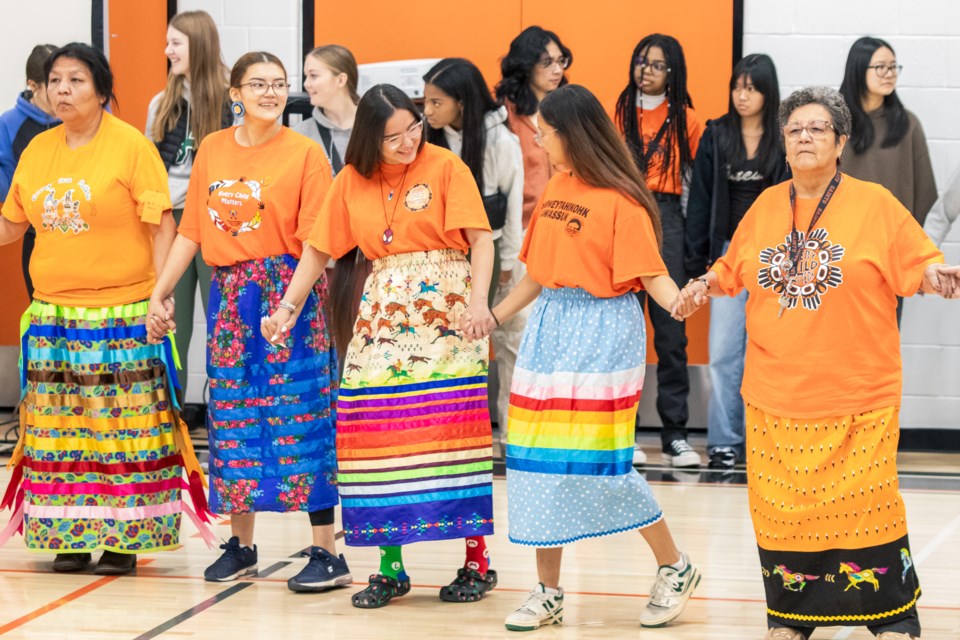ST. PAUL – Students and staff throughout St. Paul schools stood in solidarity in honour of Orange Shirt Day – also known as National Day for Truth and Reconciliation – on Sept. 30.
At St. Paul Regional High school, two guests were welcomed, including Elder Gloria Halfe, who spoke about the history of Indian residential schools with the attentive student-filled gymnasium focusing on her words.
She shared some of her experiences of when she went to the Blue Quills Indian Residential School herself, including the loneliness she felt while missing home. Outside the residential school’s window, she recalled only seeing the bush and the highway in the distance.
“No one was coming to see us,” she said.
Halfe’s grandparents only saw her once a month.
Kimberly Quinney, who was formerly involved with the Truth and Reconciliation Commission (TRC), was also present. She said residential school survivors deal with many traumas, and those traumas have been passed on to their children.
Quinney’s mother went to a residential school, making her an intergenerational survivor. When she was a child, she recalled how no one was supposed to talk at the dining table. They had to be quiet.
Quinney said her mother’s experiences made her “very strict,” influencing her upbringing, and how her mother raised her own children. At one point, Quinney told her mother, “You’re not in residential school no more . . . you’re almost as bad as a nun.”
At the realization of her own words after seeing her mother cry, “I looked down and then I started to cry, I said, ‘I’m sorry, Mom’.”
Quinney admitted the moment still upsets her to this day.
But those experiences made her want to pursue work in helping residential school survivors and their families. It made her want to “raise my kids in a different manner,” she said.
Quinney encouraged the need for continued recognition of what happened in residential schools, to recognize the stories of survivors, and honour “those that didn’t make it home.”
“That is why we honour Orange Shirt Day,” she said.
Quinney and Halfe explained that recognition of the multi-generational effects of Indian residential schools is a step toward reconciliation.
It was a sentiment also shared by Elder Linda Burns, who also spoke to students and staff at École Racette Junior High School on Sept. 30. She also shared her experiences attending an Indian residential school.
Burns said, “It was a lonely place,” especially being away from family, but there were things she learned to appreciate – like getting an education.
“Stay strong and keep going to school. Strive for education,” she encouraged the students, suggesting that children are the future, and education matters.
“Our children are special,” said Burns. “And every child matters.”



